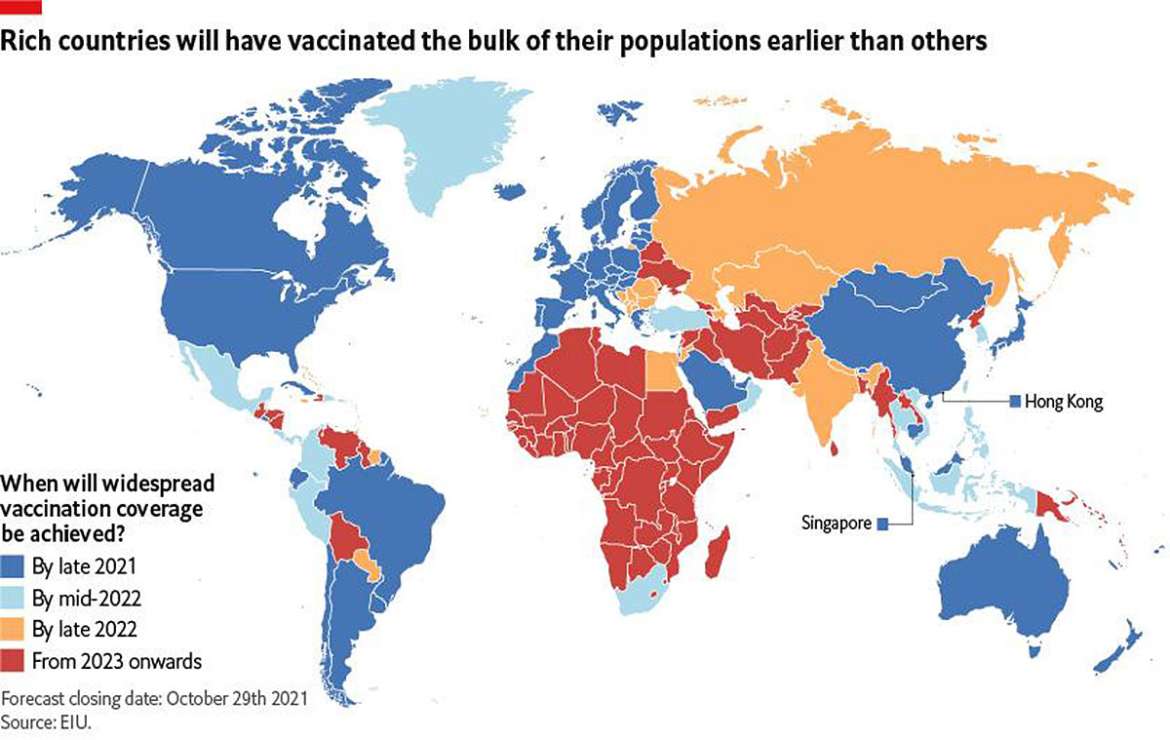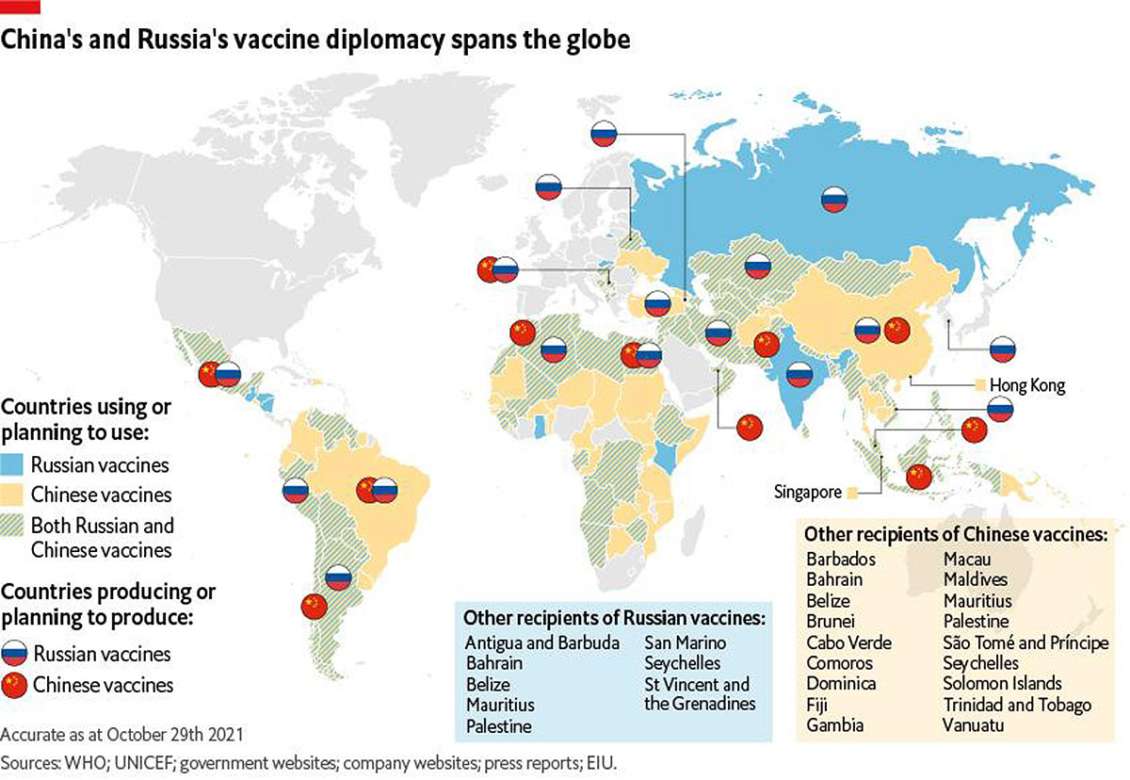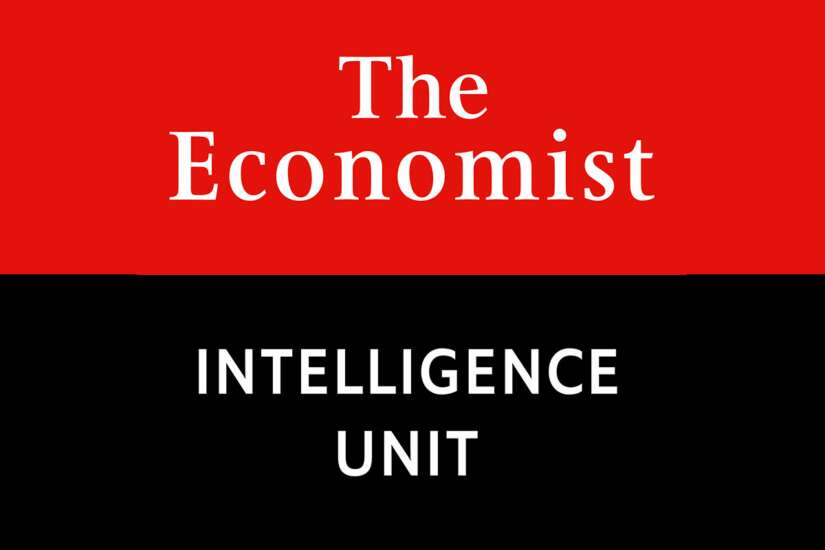New white paper from the Economist Intelligence Unit (EIU) presents vaccination success and failure stories and their economic and political implications.
- December will mark the first anniversary of the launch of the global vaccination campaign against coronavirus (Covid-19).
- Developed countries have succeeded in vaccinating large percentages of their populations, but many developing states have made only negligible progress.
- The latest EIU map of global vaccination timelines paints a bleak picture: most countries will vaccinate their population either this year or never.
- Using case stories from across the globe, the EIU’s whitepaper draws lessons from one year of vaccinating the world.
- Vaccination programmes have become political assets—or liabilities—for governments.
- China’s vaccine diplomacy has helped some emerging states achieve impressive vaccination rates, in some cases faster than richer economies.
- Russia’s vaccination and vaccine diplomacy drives have failed, and this will have notable ramifications for geopolitics.
- Tackling widespread vaccine hesitancy will be crucial to boost vaccination coverage in Africa.
- Finally, EIU’s paper offers cautionary tales of how fast vaccination drives may go wrong if governments become over-confident and relax restrictions early.
Agathe Demarais, EIU’s global forecasting director and author of the report, says:
“After one year of forecasting global vaccination timelines, our latest projections are the starkest of all. Our data show that most countries will have vaccinated the bulk of their population either this year, or not earlier than 2023: there is no middle ground and it is really a case of vaccinating now or probably never. This shows how deep the divide for accessing vaccines has become between richer and poorer economies.”
Ms Demarais adds that “Looking at our case studies, it is striking to see that vaccine hesitancy is not a first-world problem. This issue has weighed on the roll-out of vaccines in Russia and CIS countries, but also in sub-Saharan Africa. Even if vaccines were delivered to Africa in huge quantities, this would not fully resolve the continent’s vaccination issues. However, tackling disinformation, which is at the root of vaccine hesitancy, could take years.”
Finally, Ms Demarais says “Cambodia’s ability to inoculate a large share of its population shows that vaccination success stories exist in emerging states, with China’s help. Cambodia secured supplies of Chinese-made jabs early on as part of China’s vaccine-diplomacy drive. In doing so, Cambodia made what proved to be a prescient prediction: that COVAX would not turn out to be a reliable way for developing countries to access vaccines.”
UPDATED MAP OF GLOBAL VACCINATION TIMELINES:

Methodology:
This map depicts the latest forecasts from The EIU for the rollout of coronavirus vaccines, reflecting the time when countries may expect to have vaccinated the majority (60-70%) of their adult population. Criteria taken into account include supply deals, production constraints, vaccine hesitancy, the size of the population, and the availability of healthcare workers. The data are also adjusted by analysts to reflect specific conditions on the ground.
UPDATED MAP OF RUSSIA AND CHINA’S VACCINE DIPLOMACY:


